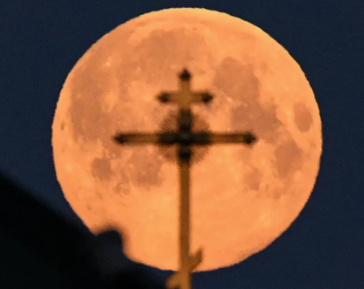
Do you know why is Easter Sunday so early this year and how come it keeps on changing every time?
The date of Easter changes each year because it is based on the lunar calendar rather than the solar calendar. This lunar aspect of Easter's date calculation can lead to variations in when it falls on the calendar from year to year.
The basic rule for determining the date of Easter is that it is the first Sunday after the first full moon that occurs on or after the spring equinox. However, this rule can vary slightly depending on whether one follows the Western Christian tradition or the Eastern Orthodox tradition.
In Western Christianity (Catholic, Protestant, and some others), Easter is celebrated on the Sunday following the first full moon that occurs on or after the vernal equinox, which is around March 21st. This means that Easter can fall on any Sunday between March 22nd and April 25th.
In Eastern Orthodox Christianity, Easter is calculated based on the Julian calendar, which differs slightly from the Gregorian calendar used in the West. As a result, Eastern Orthodox Easter typically falls later than Western Easter. Additionally, Eastern Orthodox Christians also consider the date of Passover in their calculation, which can further affect the timing of Easter.
Overall, the varying dates of Easter are a result of the complex interplay between lunar and solar calendars, as well as differences in calendar systems among different Christian traditions.
The moon’s phases determine Easter’s date. Western Easter is the first Sunday after the first full moon after the equinox, while Eastern Easter is after Passover.
This year, Easter—a Christian celebration of Jesus Christ rising from the dead—will be held on Sunday, March 31, for Western Christians and on Sunday, May 5, for Eastern Orthodox Christians.
Why the dates of Easter change every year—and why they differ so much between Western and Eastern Christianity—is primarily a story about astronomy and, more specifically, the moon’s phases.
A Lunar Festival
While some religions use a predominantly lunar calendar, Christianity does not, and yet Easter is a lunar festival, just like Ramadan, Passover, and the Chinese Lunar New Year.
At the core of all of this is the lunar year. While the Earth takes 365.25 days to orbit the Sun, the Moon takes 29.5 days to orbit the Earth. So, a lunar year is 354.3 days.
There’s a 10 or 11-day lag between the two—and that explains why the dates of Easter differ so much from year to year.
- Grace Episcopal Church
- St. Mary Star of the Sea Roman Catholic Church
- Temple Beth El of City Island
- Trinity United Methodist Church of City Island
AFP VIA GETTY IMAGES